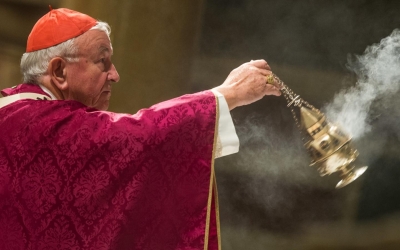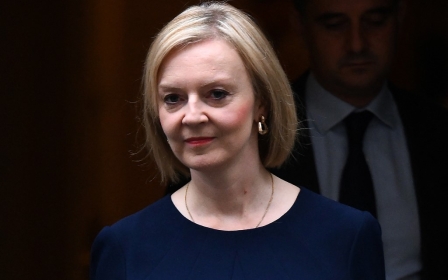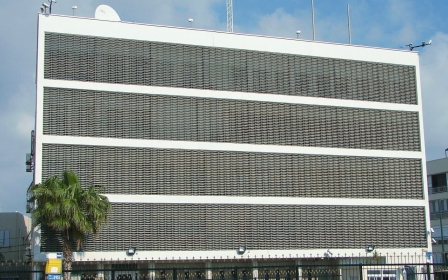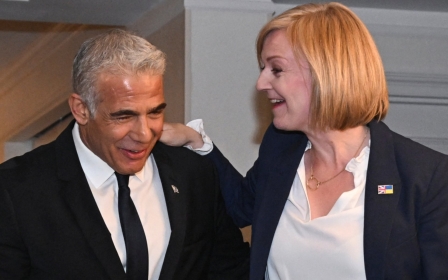UK embassy in Israel: Archbishop of Canterbury 'concerned' by possible move to Jerusalem
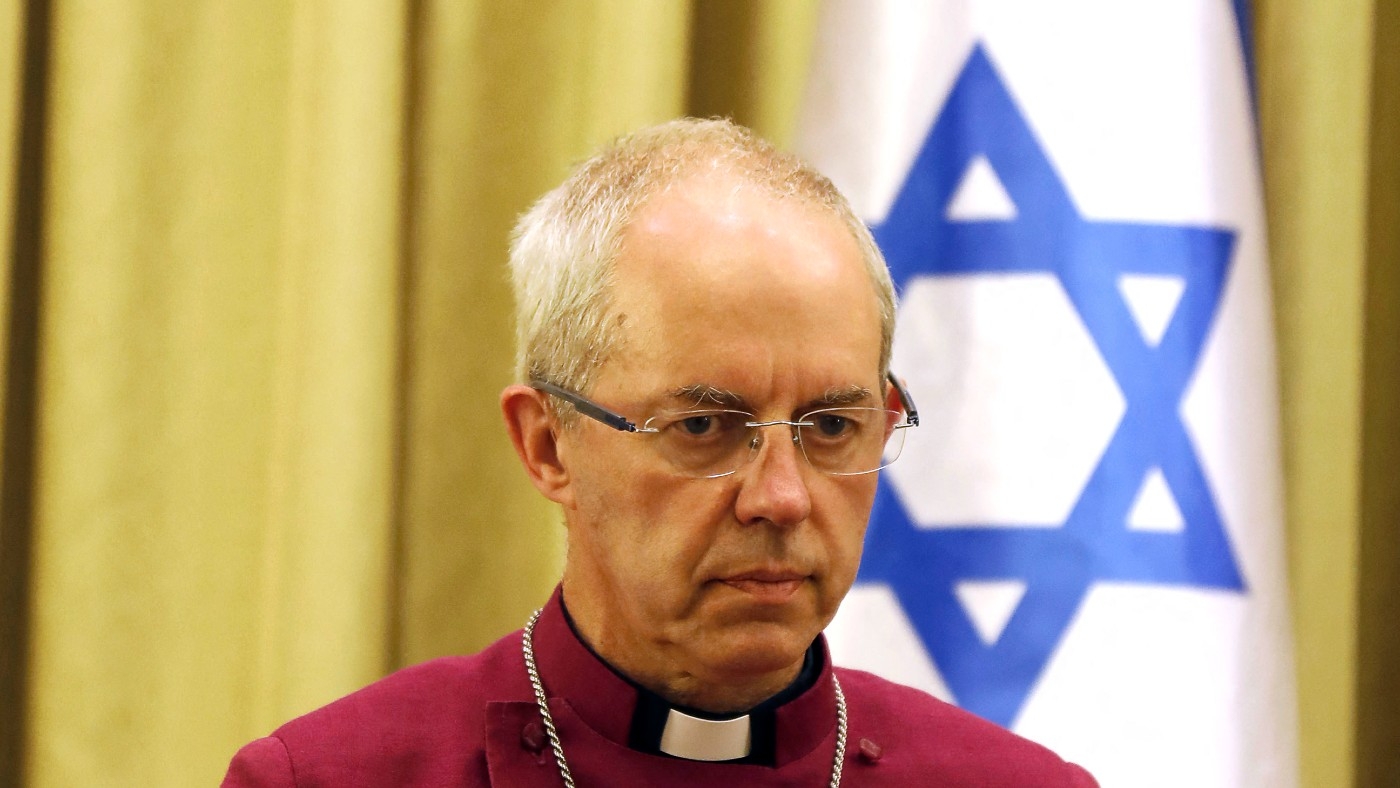
Church leaders in the UK have jointly expressed alarm at the “potential impact” if the British government moves its embassy from Tel Aviv to Jerusalem.
In a rare intervention, a spokesperson told Middle East Eye that Justin Welby, the Archbishop of Canterbury, is “concerned” about the move, which was floated by British Prime Minister Liz Truss in a meeting with her Israeli counterpart Yair Lapid last month.
The spokesperson told Middle East Eye: "The Archbishop is concerned about the potential impact of moving the British Embassy in Israel from Tel Aviv to Jerusalem before a negotiated settlement between Palestinians and Israelis has been reached.”
The spokesperson added that Welby “is in touch with Christian leaders in the Holy Land and continues to pray for the peace of Jerusalem.”
An embassy move to Jerusalem would reverse the longstanding British position. The UK has long maintained its embassy in Tel Aviv as part of a longstanding policy that the city's final status should be decided following negotiations.
New MEE newsletter: Jerusalem Dispatch
Sign up to get the latest insights and analysis on Israel-Palestine, alongside Turkey Unpacked and other MEE newsletters
If the British embassy were to be moved, Truss would be following in the footsteps of former US President Donald Trump, who, in defiance of international law, shifted the US embassy to Jerusalem, a move taken as formal recognition of Israel's sovereignty over the city.
Conservatives discuss move
The statement means that Anglican and Catholic churches now stand shoulder to shoulder in their alarm at the UK potentially moving its embassy to a holy city considered sacred by Jews, Christians and Muslims.
The Archbishop of Canterbury made his concern public hours after Britain’s most senior Catholic wrote to Truss warning her against the move.
Cardinal Vincent Nichols, Archbishop of Westminster, said: "Such a relocation of the UK embassy would be seriously damaging to any possibility of lasting peace in the region and to the international reputation of the United Kingdom."
The cardinal added that Pope Francis and leaders of churches in Israel and Palestine had "long called for the international status quo on Jerusalem to be upheld, in accordance with the relevant UN resolutions".
Middle East Eye understands that other churches in the UK are likely to oppose the move. It is also expected that church leaders from all denominations in Jerusalem will denounce Truss’s proposal.
Four years ago, all 13 Christian denominations in Jerusalem came together to condemn Trump’s announcement that the US embassy would move to the city.
In a joint statement they stated: “We are certain that such steps will yield increased hatred, conflict, violence and suffering in Jerusalem and the Holy Land, moving us farther from the goal of unity and deeper toward destructive division.”
The Muslim Council of Britain has also written to Truss, saying that the move would represent the “legitimisation of the Israeli occupation of East Jerusalem”. It warned that the move would damage "Britain’s international reputation.”
The Labour, Liberal Democrat and Scottish National Parties have all told Middle East Eye that they oppose the move and would campaign against it.
The plan was first suggested by Truss in a letter to the Conservative Friends of Israel (CFI), a pro-Israel lobby group, during the Conservative leadership campaign earlier this year her predecessor Boris Johnson departed as Tory leader.
At the Conservative Party Conference in Birmingham this week, the CFI called for the move. Jake Berry, the Conservative party chairman, pledged his "unwavering commitment… to build strong relationships with the state of Israel and to support it in its fight to ensure that it remains safe, and that the capital in Jerusalem is the home to our new embassy".
On Tuesday, MEE published a briefing note, circulated by the CFI to affiliated Conservative MPs, which stated that the UK government already owned land in west Jerusalem that had been earmarked as a site for a new embassy.
The briefing note said a move to relocate the embassy from Tel Aviv to Jerusalem would be "a bureaucratic one that recognises the reality on the ground".
Middle East Eye delivers independent and unrivalled coverage and analysis of the Middle East, North Africa and beyond. To learn more about republishing this content and the associated fees, please fill out this form. More about MEE can be found here.


